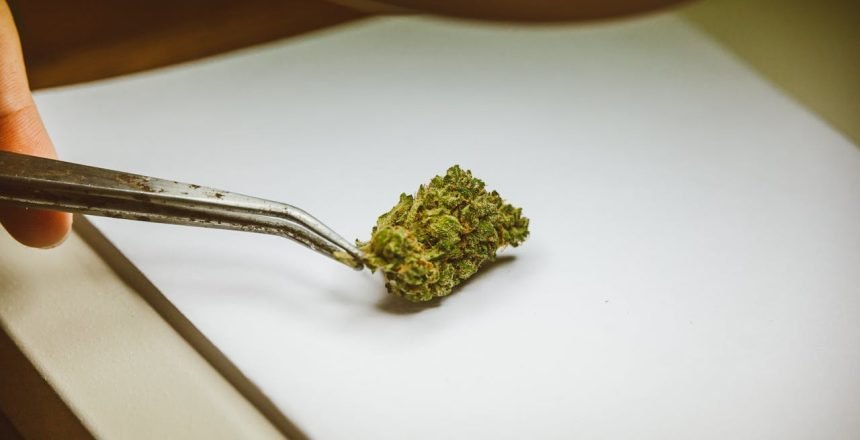Getting a medical marijuana card in Oklahoma can be a relief for those managing chronic conditions or battling long-term symptoms. Successfully applying means gaining access to a regulated system that provides treatment options that are usually more manageable and personalized. But not every application goes through smoothly. Sometimes, even when someone thinks they’ve done everything right, the provider reviewing their paperwork might reject the application.
It’s frustrating, especially when the delay slows down something you’re depending on for relief. Maybe a friend told you it’s an easy process, but you’re sitting there staring at a rejection email and wondering what went wrong. Often, the reasons aren’t as complicated as they seem. They’re just things many applicants don’t realize play a role. If you’re preparing to apply or reapply, spotting potential errors early on could save you a lot of time and stress.
Incomplete Or Incorrect Documentation
Applications can fall apart before they even get reviewed when the paperwork isn’t filled out right. Every box, every checkbox, every digital signature matters. Medical cannabis providers need to see that your documentation clearly supports the application. Skipping a detail or submitting a file that doesn’t meet the expected format could be all it takes for it to get denied.
Here are a few common mistakes that show up in rejected applications:
- Missing signatures on key forms
- Uploading blurred or cut-off documentation
- Using outdated paperwork from previous applications
- Filling out the wrong type of form
- Ignoring required fields on digital applications
It’s easy to overlook a small typo or forget to double-check the uploaded files, especially when you’re rushing or unsure of the process. Let’s say someone submits three of the four documents asked for, thinking that last one isn’t necessary. The provider won’t reach out and ask for it. They’ll just move on to the next person.
To keep your application on track:
- Read every instruction twice, even if you think you know what it means
- Preview your uploaded documents before hitting submit
- Make sure your photo ID is valid and isn’t cropped or out of focus
- Keep copies of everything you send so you can refer back to them if needed
Even though this part can feel tedious, taking your time with the paperwork helps avoid frustrating holdups.
Lack Of A Qualifying Medical Condition
Oklahoma has its own guidelines for which health concerns support the use of medical marijuana. Medical cannabis providers are expected to follow these standards closely. If they feel that your condition doesn’t fall within what’s generally accepted, they might deny the application. This doesn’t always mean your pain or symptoms aren’t real. It just means the way the case is presented needs more medical context or clarity.
Some of the conditions often seen in accepted applications include:
- Chronic pain that affects day-to-day life
- Muscle spasms linked to neurological issues
- Cancer-related symptoms
- Anxiety or depression diagnoses that have been ongoing
If your condition isn’t one that immediately stands out as qualifying, it helps to give clear notes from a physician that tie your symptoms to the benefits of cannabis treatment. A quick conversation won’t be enough. Providers are usually looking for detailed background that goes beyond a one-line description.
To better support your case, make sure your medical records:
- Explain how long symptoms have been present
- Describe how they affect your quality of life
- Mention any treatments you’ve already tried without success
- Connect how cannabis could be a safer, helpful option for long-term use
Showing consistency and honesty in your health records can make all the difference. Leaving out key details or giving vague answers might lead the provider to choose caution and deny the request. Making sure everything adds up gives your application a better shot from the start.
Issues With Residency Proof
Medical cannabis applications in Oklahoma must include clear evidence that the applicant lives in the state. Sounds simple, but this step becomes a common reason for rejection when people attach the wrong kind of document or submit one with outdated details.
A utility bill you thought would work might get denied because it’s too old. A driver’s license listing an old address can slow things down too. Sometimes people scan their documents in low quality, making it hard for providers to read. Even small things like that can send an application straight to the rejected pile.
Here’s a quick checklist of acceptable ways to show Oklahoma residency:
Oklahoma driver’s license or state-issued ID card
- Utility bill no older than 30 days
- Lease agreement or mortgage document showing your name and current Oklahoma address
- Recent paystub from an Oklahoma employer
- A letter from a residential facility, if applicable
It’s best to avoid anything that looks unofficial or altered. For example, don’t submit a screenshot cropped just to show your name and an address. That’s likely to raise flags. Keep it clear, complete, and current. Go over the details before attaching. Make sure the address matches where you live now, and double-check the date on the document.
If you’ve moved recently and don’t yet have a bill or ID showing your new address, wait until you do. Submitting before things are lined up might just waste your time. Residency proof may feel like a small step in the process, but it’s one that can absolutely make or break your application.
Previous Criminal Convictions
Having a criminal history doesn’t always mean an automatic rejection, but it definitely adds another layer to the review process. Medical cannabis providers look at this part carefully. They want to make sure patients meet state guidelines and pose no legal risk in working through the OMMA system.
Most of the time, minor offenses or anything unrelated to drug-related activity won’t interfere, especially if a good amount of time has passed. But more serious or recent convictions involving illegal substances, violence, or fraud might raise concerns. These are the situations where providers are more likely to pause or turn down the application.
If you have a record and you’re planning to apply, here’s what helps:
- Be honest about any past record
- Prepare any documentation that shows time served or case dismissal
- Include letters of recommendation or treatment history if applicable
- Make sure your paperwork matches what’s already on public record
One example might be someone who had a conviction ten years ago, paid their dues, and has been clear ever since. With clean records after that and proper documentation in hand, their application might still go through. But someone trying to hide a more recent incident or leaving that section blank might get flagged quickly.
Always assume the provider will double-check against databases because they usually do. Being upfront gives you more control instead of scrambling to clarify later when it’s already been denied.
How Green Hope Wellness Can Help
When an application doesn’t go through, it’s usually tied to one of a few problems. Most rejections happen for reasons like missing documents, not having enough medical backing, or using the wrong kind of residency proof. Sometimes, it’s just a matter of filing with the wrong form or skipping over details a provider needs to see. And occasionally, a past conviction comes into play and requires more explanation or paperwork.
Nobody wants to file twice just because of a technical error or missing signature. It takes time and delays your ability to get the support you’re after. That’s why working with someone experienced in this process can be helpful. Experts who understand OMMA’s system can make sure each piece of your application checks out and fits the current rules in Oklahoma.
We’ve seen situations where applicants struggled for weeks piecing things together, only to find that one wrong form held them back. If that process sounds stressful, you’re not alone. You don’t have to figure it all out yourself. Support is available to walk you through it step by step.
Ready To Ensure Your Application Is Accepted?
Preparing a solid medical marijuana application means getting every detail right and staying clear of common mistakes that cost you time. Things like filling out the correct forms, showing proof of residency, and properly listing your qualifying medical condition all work together to build a successful request.
If you’ve had a rejection in the past or you’re starting your application soon, it helps to know what to expect and how to make sure everything goes smoothly. Whether your questions are about paperwork, your medical history, or how to meet OMMA standards, you don’t have to handle it all alone. From start to finish, every step counts. Getting it right the first time can save you from delays and future frustration.
If you’re looking to avoid common pitfalls in your application and secure your medical marijuana card efficiently, consider working with medical cannabis providers who understand Oklahoma’s rules inside out. At Green Hope Wellness, our team is ready to guide you through every step. To start your journey toward a successful application, reach out to us today through our contact page.


